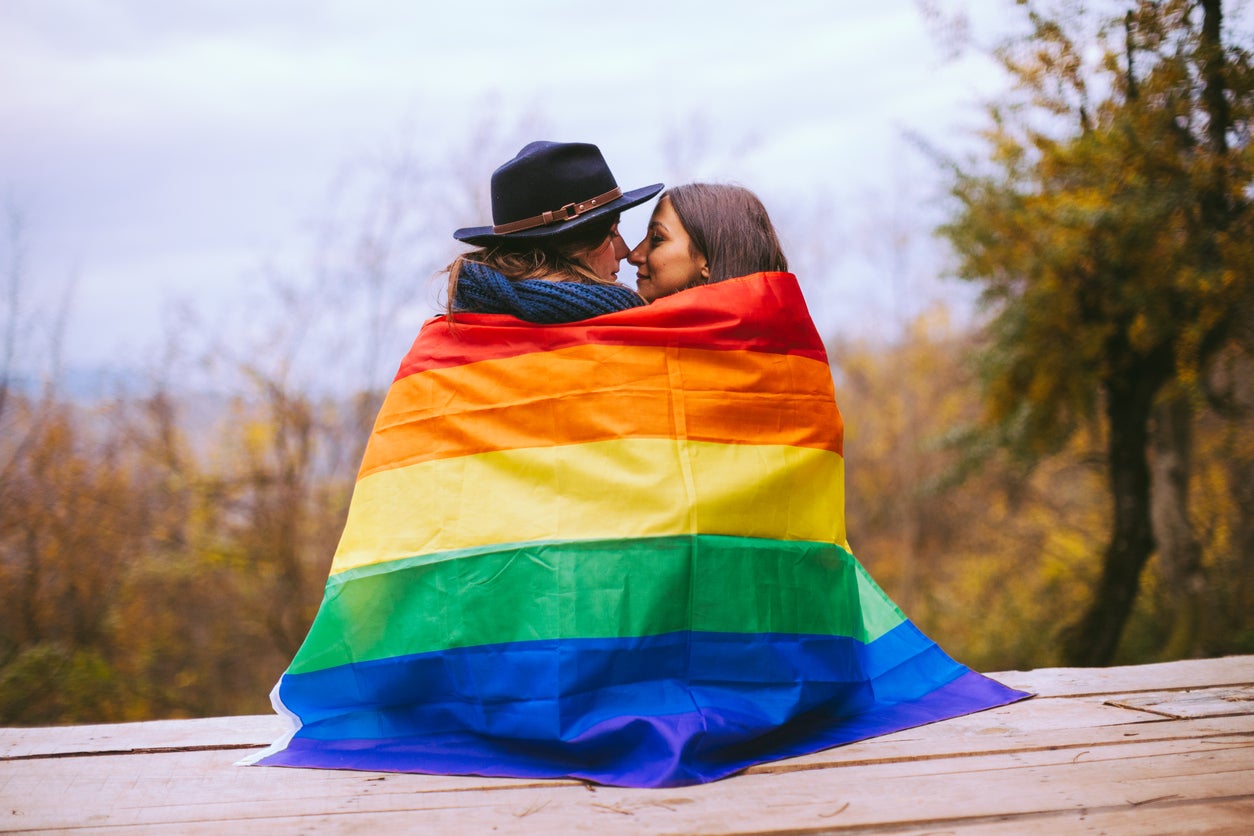Should queer people be allowed to exist or should we all just be forced to 'convert'? Good question, BBC Radio Kent
I fail to see why these topics should be up for legitimate debate, but then maybe I’m just a grumpy, prudish, free speech-censoring, snowflake feminazi


Your support helps us to tell the story
From reproductive rights to climate change to Big Tech, The Independent is on the ground when the story is developing. Whether it's investigating the financials of Elon Musk's pro-Trump PAC or producing our latest documentary, 'The A Word', which shines a light on the American women fighting for reproductive rights, we know how important it is to parse out the facts from the messaging.
At such a critical moment in US history, we need reporters on the ground. Your donation allows us to keep sending journalists to speak to both sides of the story.
The Independent is trusted by Americans across the entire political spectrum. And unlike many other quality news outlets, we choose not to lock Americans out of our reporting and analysis with paywalls. We believe quality journalism should be available to everyone, paid for by those who can afford it.
Your support makes all the difference.Should queer people be allowed to exist or not? This is essentially the question BBC Radio Kent asked this morning when it aired a debate about whether we should still have gay conversion therapy, with an accompanying (now removed) Twitter poll.
It read: “TV doctor @DrRanj has told Breakfast gay conversion therapy is akin to psychological abuse; should gay conversion therapy be banned?”
One of two options was: “It’s acceptable practice”.
Should psychological abuse be banned? Should having consensual sex and relationships with whomever we choose be protected? Should queer people’s right to exist be accepted, or should society just ship us all off to a camp where we can be shamed, tortured, denied who we are and treated as less than human, all because we aren’t heterosexual?
I fail to see the debate here.
One anonymous survivor of a gay conversion camp reports being told “how to eat, talk, walk, dress … even breathe”. He recalls being given electroshock therapy every day of the week, harassment and physical abuse. Many survivors of conversion therapy come out the other side with incredibly poor mental health; some turn to substance abuse, some attempt suicide, some succeed.
People who go through conversion therapy face 8.9 times the rates of suicidal ideation. Conversion camps deny queer people our identities, our health and sometimes even our lives. Again, I fail to see the debate here.
The fact that gay conversion therapy is even still legal in the UK is a shock to many. It was a shock to me when I found out. I’m queer and trans and I’ve known since a very young age (even before I admitted my identity to myself) that these identities were not quite as acceptable in the eyes of society.
After all, you can bet if a group of people opened a centre offering to “cure” straight people, it would be shut down immediately – and rightly so. But we aren’t afforded this – our lives are second best in the eyes of the Government.
Our lives are clearly second best in the eyes of the BBC too, but it’s not just them. If you’re queer or trans you know this. The Radio Times recently ran a poll: “Should Strictly Come Dancing feature same-sex couples?” (which got an almost 50 per cent “no” vote). It’s hard not to read that as: should we admit these people exist, or should we continue conveniently pretending they don’t?
Then there’s the fact that pretty much every major publication out there regularly runs articles about whether denying that trans people are the gender they say are is transphobic or simply “radical feminism”.
It sounds an awful lot like when we used to debate whether gay people existed or not, whether they should be allowed to use certain changing rooms or toilets, or whether they could “really know” from a young age who they were. We’re having that exact same debate right now when it comes to trans rights – and we shouldn’t be. My identity and my right to exist as freely as anyone else should not be a panel discussion on day time television or a radio stint to increase viewings.
But it’s not just queer and trans rights that are thoughtlessly “up for debate”.
Who could forget when the Today programme invited Laura Bates on to talk about whether it was just harmless banter for Donald Trump to say “grab ‘em by the pussy. You can do anything”? I don’t really get why condoning sexual assault of women would be a debatable topic, but maybe I’m just a grumpy, prudish, free speech-censoring, snowflake feminazi.
Then there’s the BBC 2 programme Abortion on Trial, which recently featured a panel discussion about whether the abortion law is “fit for purpose in 2017”. Again, I fail to see how this is a debate. Should people have the right to decide what to do with their own bodies? How are we still debating this, 50 years after the Abortion Act? Fifty years later!
The answer, of course, to why we are still debating any of these things, must be ratings. Covering “controversial topics” to rile up and engage an audience has become so popular that programmes are now pushing the boat out, and reintroducing debates which should have died centuries ago.
No one’s denying it works – I’ve never listened to BBC Radio Kent in my life before this, and now I’m writing a whole article off the back of one of its features.
But – and this is the crucial part – the reason we are still debating any of these things is also due to ignorance, fear, privilege and a complete lack of creativity. If I wasn’t queer and trans, who knows? Maybe I’d also be tempted to bandy about “controversial” views on the subject for attention.
And that’s where creativity comes in – it’s lazy and careless to use minority groups as the butt of a debate just to pull in more viewers. We deserve more respect and more kindness than that. Think of other ways to do it – project our experiences, which are so often not heard. Don’t gamble with our lives and our health like it means nothing.
BBC Radio Kent has apologised on its Twitter page for the poll, but apologies aren’t really good enough. The damage has been done. We’ve been reminded once again that we are second-class citizens.
Join our commenting forum
Join thought-provoking conversations, follow other Independent readers and see their replies
Comments